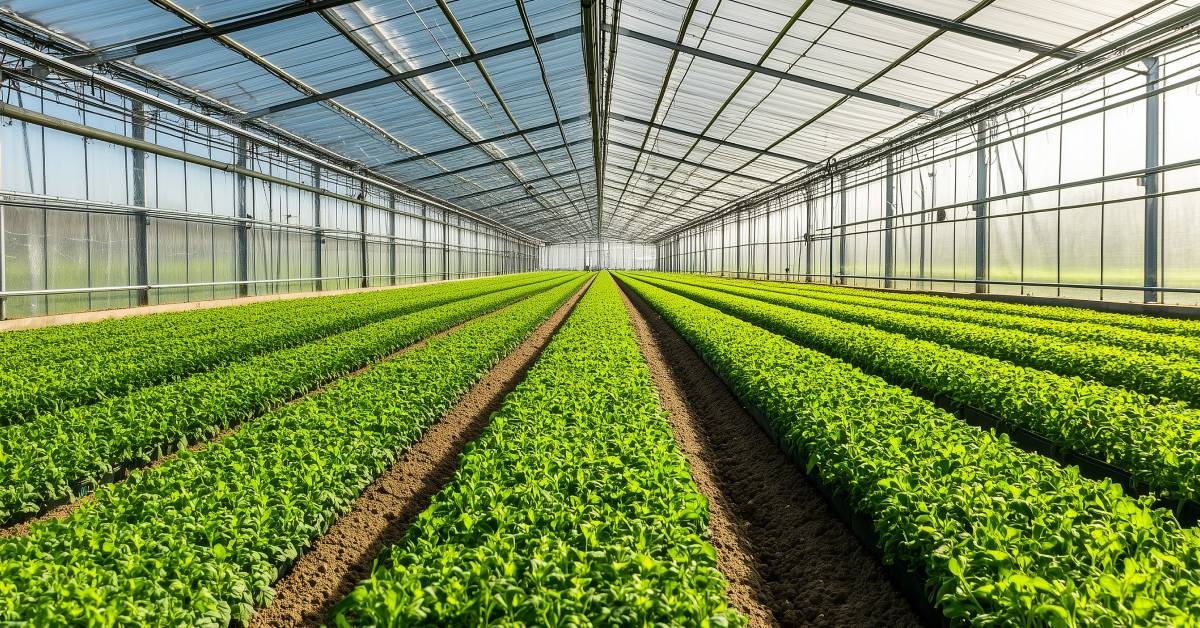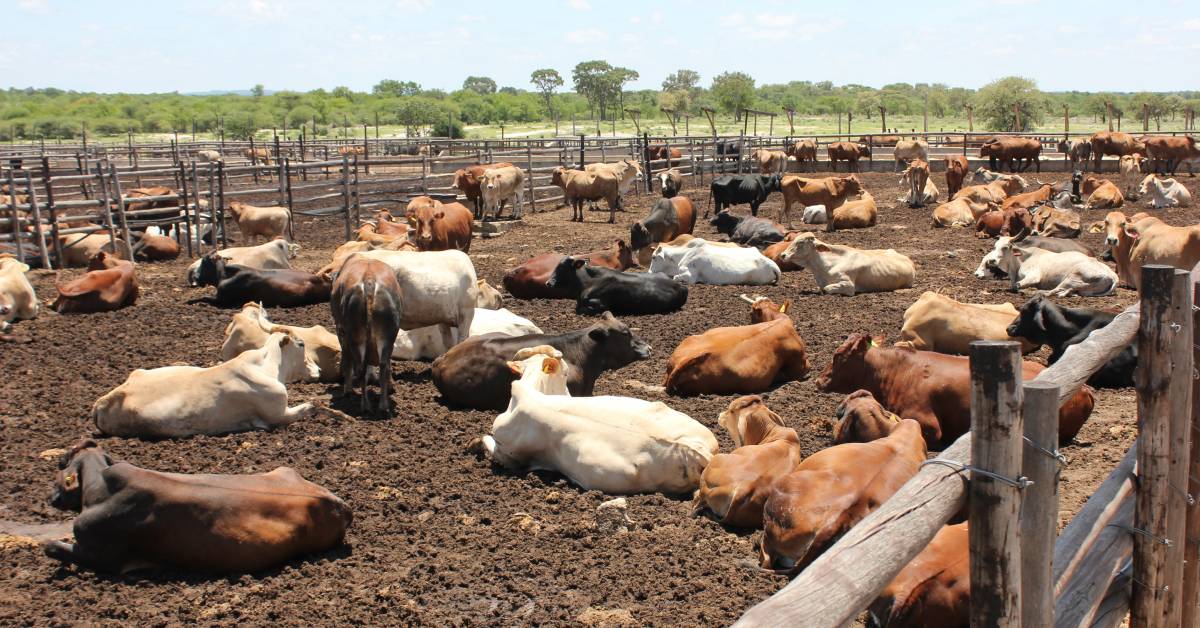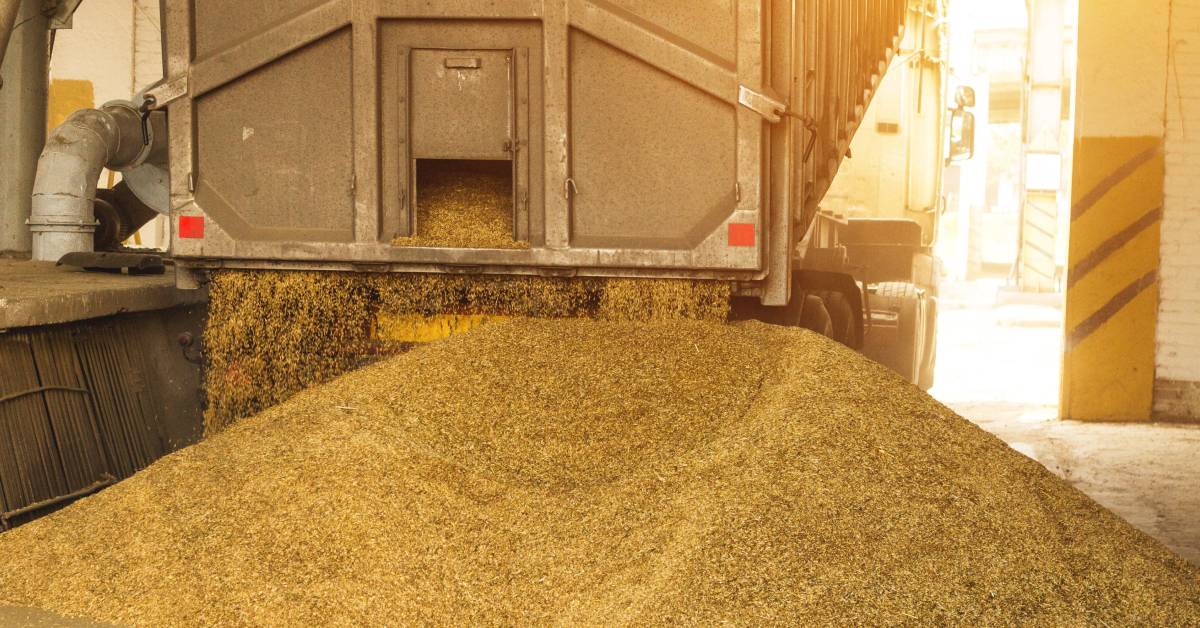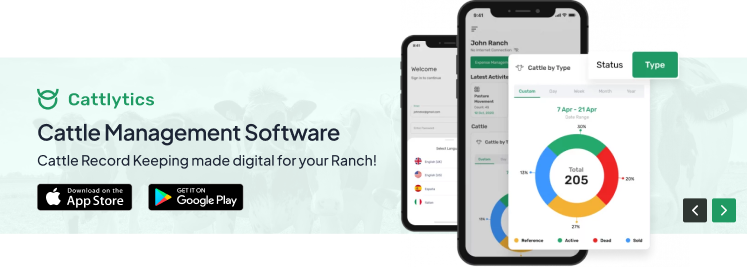At the crossroads of high-end technology, where control, productivity, and development pull together agribusiness, seed preparation is a crucial aspect between field and table. Seed management software is a marvel that lies at the center of smooth operations in modern seed processing.
Seed management software is a complex suite of digital advancements that carry out the delicate process of seed processing, from germinating to distributing, with a degree of precision and efficiency that is hard to imagine.
The history of seed processing goes back to time immemorial, as it relates to the development of modern agricultural civilization. It traces back to peasant times when the simplest methods were applied to choose and breed the best seeds.
Although seed processing has developed from small plots of subsistence single-trip to the global agricultural industry throughout the millennia, the science involved in it has remained the same.
Notably, seed processing plants use the newest technology and best practices to guarantee the production of high-standard seeds, constituting the planet’s global food security base.
Amidst that technological thrill and fast-growing customer expectations, Folio3 AgTech’s seed management software has become an irreplaceable element.
With the advent of digitalization, automation, and data-driven insights, Folio3 AgTech’s seed management software is pointing (to) a sector revolution due to its capability to speed up and smooth process flows, raise quality control measures, and guarantee compliance with regulatory standards.
The Current State of the Seed Industry
The seed industry somehow lives inside the domain of worldwide agriculture and is influenced by numerous trends and circumstances. Population growth and diet transition are the most significant change factors that could impact global seed consumption.
With the development of the world population, particularly from developing regions, concerns about food security and the capacity to produce enough food for people have become significant issues. Due to the continuous increase in population, there is a resultant need for high agricultural production.
Therefore, this will allow the introduction of improved seeds, including seed varieties that thrive in different conditions, such as those that offer high yields, resistance to pests and diseases, and other properties, such as nutrient improvement.
Another popular trend today is converting to environmentally friendly agriculture practices, which reshape and encourage seed demand.
Owing to increasing anxiety about land pollution, climate change, and natural resource conservation, there is always deliberation about the appropriate seeds to cultivate and the implications of these practices for the environment.
The force leads to progressive seed-breeding technologies and the use of seeds that are more responsive to less water and fertilizer and have no impact on the surroundings.
Challenges in Seed Management
Despite the promising outlook for the seed industry, agribusinesses face several difficulties in seed management that impact their ability to meet growing demand effectively:
Quality Control
The standards of the seeds must be checked for the success of agribusinesses regarding customer-friendly production and compliance with regulatory norms.
Nevertheless, maintaining steady seed quality across the whole vegetative production process, which starts with breeding and multiplication and ends with processing and distribution, is not a piece of cake.
The influence of environmental conditions, genetic diversity levels, and seed preparation methods can result in seed quality problems, including germination rates, vigor, and planting healthiness.
Scalability
With increasing demand for seeds worldwide, agribusinesses must improve their capacity to efficiently meet the market supply levels.
Nonetheless, many seed production facilities face these inventory and production process issues: acquiring raw materials, optimizing production, and inventory management.
Implementing seed multiplication at a large scale might be fraught with suboptimality, supply and distribution imbalances, and quality control challenges unless the infrastructure and resources are available.
Efficiency
Efficiency is essential for seed companies to remain competitive and maximize profitability. However, inefficiencies in seed management processes, such as manual data entry, paper-based record-keeping, and outdated technology systems, can hinder productivity and increase operational costs.
Additionally, inefficient seed processing workflows can lead to delays in product delivery, customer dissatisfaction, and lost revenue opportunities.
The Role of Seed Processing Software
Modern seed management software is the fundamental key to profiting seed businesses with the maximum in seed production practices.
The improved software tools encompass a toolbox with enormous functional characteristics and capabilities depicting seed acceptance, quality, labor efficiency, and yield prediction.
Seed management software is the core mechanism for modernizing and fine-tuning seed-producing enterprises in the agribusiness industry.
Agribusinesses can holistically speed up efficiency, productivity, and profitability during life cycle seed production by benefiting from enhanced functionalities such as seed lot management, inventory management, quality assurance, process automation, or connecting with other management tools.
As technology progresses every day, the importance of seed management software may not stop as it maintains the competition, innovations, and sustainability of the seed industry.
Let’s delve into the key features and benefits of seed management software:
Seed Lot Management
Seed management software opens a possibility for agribusinesses not only to import seed lots promptly but also to control them through the entire production process.
It enables farmers to know the seed lot, where it originated from, and its raw data and status until processing and distribution are done.
Such a system, which features many management modules, enables item tracking, controls quality, and ensures compliance with regulations.
Inventory Management
Folio3 AgTech’s seed management software offers state-of-the-art inventory management solutions to provide facilities for regularly tracking and managing seed stocks.
On the one hand, it provides visibility of the inventory levels and stock movements and manages order replenishment.
Maintaining proper inventory records enables agribusinesses to manage their stock levels, reduce waste incidents, and ensure that the supply of seeds is in time to meet consumer demands.
Quality Assurance
Quality assurance is a fundamental element of seed processing, and advanced technology software solutions give an array of quality control auditing tools to guarantee seed purity, germination, and uniformity.
This way of utilizing devices allows users to conduct seed viability tests, get results, and make quality reports.
By taking strict quality assurance pills, agribusinesses can continue with seed quality standards, build customer trust and confidence, and reduce product recalls.
Process Automation
Folio3 AgTech’s seed management software employs automation technology to achieve efficiency in production activities that generally involve seed cleaning, grading, and packaging.
Automated production cuts down on manual labor, thus correcting it and improving operational efficiency.
Moreover, agricultural enterprises can increase seed production flows without undermining quality and productivity through automation.
Integration with Agribusiness Management Tools
Folio3 AgTech’s seed management software is built to interface correctly with random agribusiness management programs, such as farm management software, crop planning systems, and supply chain management platforms.
The integrations are bridges across functional areas that facilitate data exchange and workflow synchronization, thereby approaching seed production management holistically.
An organizational agribusiness system could leverage the gained popularity, efficiency, and interactivity throughout the value chain by integrating Folio3 AgTech’s seed management software with other agribusiness systems it was already using.
Key Benefits of Seed Processing Software
Seed processing software offers agribusinesses numerous benefits, including enhanced quality control standardization, improved efficiency and automation, better traceability and compliance, and more effective data management and analysis.
Using the benefits below, companies can achieve high performance in their seed processing operations, increase productivity, and stay competitive in a constantly changing industry.
Quality Control and Standardization
Seed processing software is integral to seed integrity preservation through computerized processes. Through optical sorting and automated grading, software programs ensure that acceptable seeds are only chosen for further processing.
Therefore, it reduces human error and inconsistencies in seed sorting and produces seeds with high-quality and uniform features.
Software-driven quality control systems also assist agribusinesses in conforming to product standards and seed certifications, such as ISO or ISTA, enabling seeds to meet regulatory criteria and customers’ demands for purity and germination rates.
Efficiency and Automation
Seed processing software improves operational efficiency by eliminating repetitive tasks and optimizing production workflows.
Software systems automate seed processing stages like seed cleaning and conditioning to eliminate the extensive workforce and alleviate production bottlenecks.
Automation speeds up the seed processing time and improves accuracy and uniformity, leading to greater throughput and lower production costs.
By employing automation technology, agribusinesses can enlarge their seed processing operations more efficiently and rapidly to meet changing customer requirements.
Traceability and Compliance
Seed processing software is crucial in meeting regulatory standards and providing traceability through the seed supply chain.
Software systems that preserve critical data such as seed origin, treatment history, and quality tests make traceability from farm to sale possible.
It not only increases the transparency and accountability of the business but also allows the agribusinesses to respond quickly to issues of quality or recall.
In addition, seed processing software enables organizations to comply with the seed certification regulations and phytosanitary rules by supplying the proper documentation and audit trail.
Data Management and Analysis
Seed processing software is a single point for collecting, storing, and analyzing seed production and quality data. Software systems collect data on seed traits, environmental conditions, and production metrics in real-time by integrating with sensors, scanners, and data collection devices.
Such data is processed and studied, identifying tendencies, patterns, and anomalies that can be the basis of decision-making and production optimization.
Through advanced analytics and reports, agribusinesses can obtain essential clues to the factors affecting seed quality, yield, and profitability. This information allows them to make data-based decisions and continually optimize their operations.
Future Trends in Seed Processing Software
These trends will enable agribusinesses to optimize their seed production processes, enhance supply chain transparency, and adapt to evolving market demands, driving innovation and growth in the seed industry.
So, the future of seed processing software is characterized by integrating advanced technologies such as:
Predictive Analytics and AI
Incorporating artificial intelligence (AI) into the seed processing software prediction engine is a breakthrough in how agriculture businesses manage their seed production.
AI algorithms analyze vast amounts of set and live data to detect patterns and trends. Thus, seed processors can easily anticipate crop yield, optimize planting schedules, and predict market demand more accurately.
Seed processing software can benefit agribusinesses by ensuring that predictive analytics are used to propose suitable seed processing, storage conditions, and distribution strategies. Hence, the seed processors can be assured of maximizing productivity and increasing their profit margins.
Not only do intelligent AI solutions enabling predictive maintenance identify the detection of a potential equipment failure before it happens, but they also minimize downtime, thereby cutting down maintenance costs.
Blockchain for Enhanced Traceability
Blockchain technology is a fantastic dosage area, as it improves the traceability and security of seeds in the supply chain.
With the aid of blockchain’s decentralized approach to data storage, the software can make it impossible to alter the document, recording the sequence of farmers throughout the seed’s journey, i.e., from the farm to sale, with the inclusion of seed origin, treatment history, and quality test results details.
This recorded data is an irreversible roadmap that helps to follow things promptly. First, it prevents seeds from counterfeiting, fraud, and contamination.
Furthermore, blockchain-based smart contracts enable the automation of transactions and payments, making them a tool for smoother and more productive procurement and distribution processes and reducing administrative tasks. Blockchain’s versatility extends beyond agriculture; for example, in the financial sector, it’s becoming increasingly popular for securely managing cryptocurrency transactions, allowing users to easily Buy Ripple and other digital assets while ensuring transparency and security.
As blockchain technology adoption expands, the providers of seed processing software will act as the primary bearers in implementing and administering blockchain-based traceability solutions across the seed industry.
Customization and Scalability
The outlook for the seed processing program is based on the standardization and scalability of solutions that allow for different business needs.
The seed industry continues to evolve and become more diverse with time; hence, organizations demand software platforms that can dynamically adapt to changing requirements and multiply quickly as the operations expand.
Today’s seed processing software is built with modular architecture and configurable workflows. This gives the user multiple variations from which to choose, allowing them to develop their software to match their operations and modify it for regulatory compliance and business targets.
Further, cloud-based deployment models offer agribusinesses the possibility of scaling up their computing resources on demand, leading to better performance and the consequential minimization of costs.
Through tailor-made and expandable seed processing software, seed businesses can remain limber, competitive, and thrive in the fast-moving seed industry environment.
Overcoming Challenges in Implementing Seed Processing Software
Implementing seed management software in agribusinesses can eventually facilitate a lasting transformation, although it still faces its fair share of obstacles.
These include upfront costs, staff training, and technology adoption, which are some challenges that should be considered to facilitate a seamless transition, hence the optimal ROI.
Here, we’ll explore common challenges faced by agribusinesses when implementing seed processing software and offer solutions and strategies to overcome them effectively:
Cost of Implementation
Challenge
One of the most significant challenges when using new seed processing software is the financial aspect of purchasing the system and its implementation.
Many agribusiness owners may shy away from the initial outlay argument as it is an obstacle for small operations with limited financial capability.
Solution
Agribusinesses can address these additional costs by exploring multiple possibilities, such as subscription-based, leasing, or financing provided by software vendors.
Furthermore, a cost-benefit evaluation helps organizations calculate the projected savings and efficiencies obtained from applying the software, making investing more attractive.
Training and Staff Readiness
Challenge
Regular software implementation requires intensive training programs to check employees’ work quality and knowledge of software use.
Firstly, change resistance and an unwillingness to embrace new technologies may arise as the implementation progresses.
Solution
Agribusinesses can address training challenges by implementing personalized training courses tailored to various user roles and competencies within the company.
Providing on-the-job workshops, online tutorials, and ongoing support from the software vendor will enable staff to be more confident and booming as they adopt the new system.
Also, nurturing a corporate culture of innovation and lifelong learning provides employees a fertile ground for accepting technology implementation and changing the workflow.
Technology Adoption and Integration
Challenge
Integrating seed processing software with existing systems and workflows can be complex, particularly in organizations with legacy infrastructure or disparate software applications. Ensuring seamless integration and data interoperability between platforms may require significant technical expertise and resources.
Solution
Agribusinesses should prioritize selecting seed processing software with robust integration capabilities and compatibility with existing systems.
Collaborating closely with software vendors and IT professionals can help identify potential integration challenges early in the implementation process and develop tailored solutions to address them.
Adopting open standards and APIs (Application Programming Interfaces) can facilitate data exchange and interoperability between software applications, streamlining the integration process and reducing compatibility issues.
Conclusion
In this blog, we have shown the significance of agribusiness software in leaping up the capabilities to be competitive and remain profitable. We have also addressed the vital issue of the Uptake of product development software, which entails logistic problems like budgeting for purchases, training staff, and integrating the devices with other existing platforms.
At this point, seed processing software undoubtedly holds the top place among the ways of seed industry modernization. It ensures a set of functions that is nothing less than a breakthrough in seed production and management.
Automation pushes out such tasks, making it quicker and more efficient to ensure compliance with quality standards and facilitate traceability advancements. In general, automation enhances operations and cuts the number of manual errors.
However, AI-powered software solutions have brought data integration and automation transformation to agribusinesses and enabled these enterprises to anticipate market trends, optimize resource allocation, and effectively manage risks with features like predictive analytics, AI integration, and blockchain-based traceability.
Through prior proactive identification of these hurdles and investing in an all-inclusive training system, agribusinesses are thus able to realize complete returns and blend modern seed technology solutions to the fullest.
With the transformation of the agricultural landscape, agribusinesses should understand that the future endpoint is in seed processing software. This means they must invest in software to stay competitive and green.
Though the path forward might be complex, and there will be many jumps to the unknown, a company can become a leading industry player within their field and positively impact agricultural outcomes by prioritizing innovation, change, and the best use of technology.
FAQs
What is Seed Processing Software, and Why is It Essential for Agriculture?
Agtech’s seed processing software automates tasks like sorting, grading, and packaging seeds, enhancing efficiency and quality control. Modern agribusinesses need to streamline operations and meet growing demand sustainably.
How Does Seed Processing Software Improve Efficiency in Seed Management?
Seed processing software reduces manual labor and streamlines operations, from sorting seeds to packaging. Automating tasks and optimizing workflows boosts productivity and lowers operational costs.
Can Seed Processing Software Ensure Compliance With Regulatory Standards?
Seed processing software ensures compliance with regulatory standards by facilitating traceability and maintaining quality control throughout production. This helps agribusinesses meet regulatory requirements and maintain consumer trust.
How Does Seed Processing Software Contribute to Better Data Management and Analysis?
Seed processing software collects, manages, and analyzes data related to seed production and quality. Providing insights into seed characteristics and performance enables data-driven decision-making, improving yields and profitability.
What Are the Future Trends in Seed Processing Software Development?
Future trends in seed processing software include the integration of predictive analytics and AI for trend forecasting, blockchain technology for enhanced traceability, and customizable, scalable solutions to meet diverse agribusiness needs. These advancements promise to further revolutionize the seed industry and drive sustainable growth.







